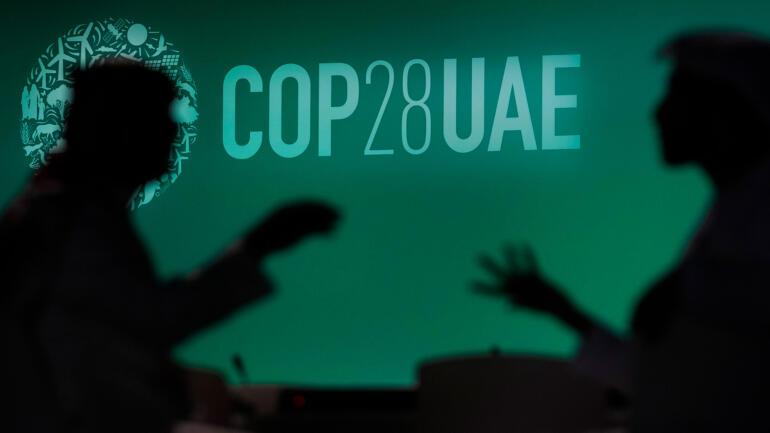Delegates from nearly 200 countries are gathering in Dubai this week for the United Nations climate summit, COP28, which begins on November 30. At this year’s meeting, countries are faced with a contentious set of issues amid record heat, droughts and flooding.
U.S. Vice President Kamala Harris will be attending this year’s event, along with U.S. Secretary of State Antony Blinken.
Chinese State Council Ding Xuexiang will represent China.
Against the backdrop of another hot record-setting year, a struggle remains to phase out fossil fuels and help developing countries finance their energy transition. The UN released a report in September calling for countries to “rapidly accelerate action” in cutting emissions as it fails to meet goals from the 2015 Paris Climate Accord.
The main aim for COP28 is to assess for the first-time how countries are doing in meeting the Paris Accord goal, limiting global temperatures from rising above two degrees Celsius, with the aim of staying at 1.5 degrees Celsius.
The UN warns that to avoid worsening catastrophes, emissions need to fall 43 percent by 2030 and by 60 percent by 2035, compared with the 2019 levels. Ideally, the goal is to reach net-zero carbon emissions by 2050 globally.
The world has made progress from 2015, when the world was on track for three degrees Celsius of warming.
Businesses, investors, cities and states have played a major part in climate action, the UN reported and sees them as collaborating with stakeholders in enhancing climate goals.
Despite the successes and progress made, the world is still lagging in meeting its climate goals.
The UN found that on the current trajectory, global emissions are not in line with modeled global mitigation pathways set out by the Paris Accord, with little room to raise commitments or implement existing plans to limit 1.5-degree Celsius warming.
In 2022, greenhouse gas concentrations, global sea level and ocean heat content hit their highest records.
Countries agreed at the COP26 meeting to phase down coal usage but never agreed to quit fossil fuels.
The fight over fossil fuels might be the biggest sticking point for the upcoming meeting.
The U.S., EU and many climate-vulnerable countries are insisting that a final COP28 deal must commit to phasing out fossil fuels. However, G20 countries failed to agree on this point at their summit in July, while Russia, among other countries, has opposed fossil fuel phase-out.
Sultan Ahmed al-Jaber, the UAE’s incoming COP28 President, said the phasing out of fossil fuels is “inevitable,” however, he’s faced criticism for his dual role heading the UAE state-owned oil and gas company ADNOC, and leading this year’s climate talks.
To mitigate the current dangerous trajectory, the UN called on governments to scale up the use of renewable energy while phasing out fossil fuels, end deforestation and implement systems on both supply-and demand-side measures.
 CGTN America
CGTN America

